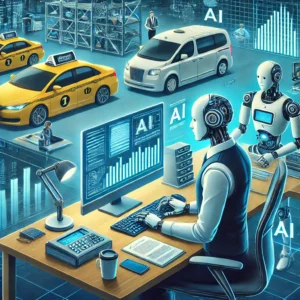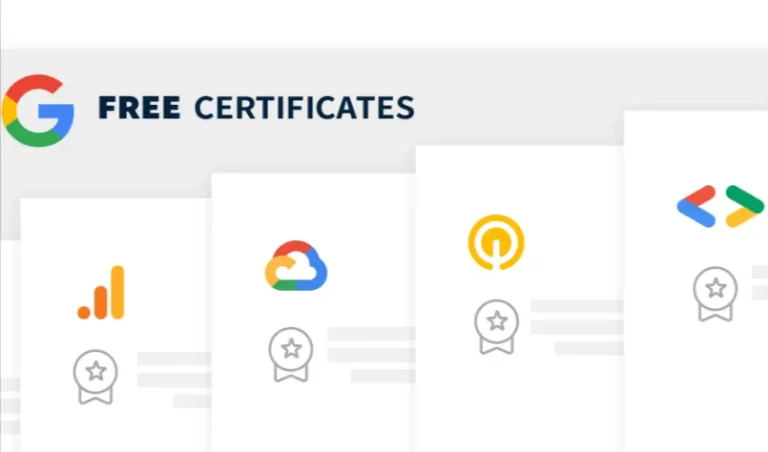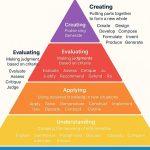
Top 10 Careers That Could Be Replaced by AI: Discovering Careers that could be replaced by Ai in the Next Decade
Artificial intelligence is changing the world of work in ways many of us never imagined. Today, many jobs are done by computers, and new technology is set to change even more.
This article explains how artificial intelligence is stepping into roles that many people work in. We will discuss careers that could be replaced by Ai in the next decade and show why many of these jobs might vanish as machines get smarter. In this discussion, you will learn about the ten main types of jobs that are at risk and how the change is happening.
Whether you work in one of these fields or simply want to know what the future may hold, this article will help you understand the impact of AI on our careers.
Over the next ten years, more jobs might change hands from people to machines. This change will be most visible in roles where the work is simple, repetitive, or based on processing a lot of data.
As AI grows more capable, tasks that once needed human effort will soon be managed by algorithms and automated systems. In our discussion today, we refer several times to careers that could be replaced by Ai—a term that many business leaders and workers are beginning to use when they talk about the future of work.
The following sections look at each of these jobs in detail, using plain and clear language.
1. Data Entry Clerks

Data entry work means putting information into computer systems, updating records, and keeping track of details. In many companies, this job has been done by people who work with keyboards and screens every day. However, machines now learn to read and type very fast, reducing the need for humans in this role.
Careers that could be replaced by Ai: Data Entry
AI uses tools like Optical Character Recognition (OCR) to read printed or handwritten text and convert it to digital data. Here are some key points about how AI is taking over data entry:
- Fast Reading: AI can scan papers and documents quickly and accurately.
- Error Reduction: The software makes fewer mistakes than a tired human might.
- Organized Data: AI helps sort, clean, and file information without needing breaks.
In many businesses, investments in AI technology have grown rapidly. The future looks bright for companies that use these systems. Many experts believe that in the coming years, the role of data entry clerks will shrink or even vanish as machines take over these simple but time-consuming tasks.
2. Customer Service Representatives

Customer service is an area where many companies used to have large teams of people answering phones and emails. Today, technology has introduced chatbots and virtual assistants. These computer programs can handle many routine questions without any help from a person.
Careers that could be replaced by Ai: Customer Support
Let’s break down how AI is changing customer service:
- Instant Answers: Chatbots can reply immediately to common questions.
- Round-the-Clock Help: AI systems are available 24 hours a day, which means customers can get help at any time.
- Learning and Improving: With each interaction, AI learns more about what customers need, making it better over time.
While there will always be a need for human empathy in more complicated cases, the bulk of everyday customer service tasks are now managed by AI. This means many roles in call centers and help desks could soon fall into the category of careers that could be replaced by Ai.
3. Telemarketers
Telemarketing is all about calling people to sell products or services. Traditionally, these workers make many calls in one day, trying to persuade potential customers. However, AI is starting to change how companies reach out to people.
Careers that could be replaced by Ai: Telemarketing
AI changes telemarketing in several ways:
- Voice Assistants: AI systems can talk to customers and answer their questions using natural speech.
- Better Targeting: With the help of predictive analytics, AI can decide which customers are most likely to buy a product.
- Automated Outreach: AI can send personalized emails, texts, or even make phone calls without human help.
Because many customers today prefer digital communication over a cold call, the job of a telemarketer is becoming less common. In the near future, this is one of the many careers that could be replaced by Ai, especially as digital marketing becomes more sophisticated.
4. Proofreaders and Editors
Writing and editing have long been human tasks. Professionals check for mistakes, fix grammar, and ensure that a document sounds right. Today, many tools powered by AI can review text almost instantly.
Careers that could be replaced by Ai: Editing and Proofreading
AI tools such as Grammarly or Hemingway Editor show how technology can help with writing:
- Instant Error Checks: These tools spot spelling and grammar mistakes as soon as you type.
- Style Suggestions: AI can suggest changes that make your writing clearer.
- Adapting to Styles: Some programs learn to match the tone or style that you prefer.
Even though creative writing still needs the human touch, many basic editing and proofreading jobs are at risk. This is a clear example of careers that could be replaced by Ai, as more people turn to digital tools for quick corrections.
5. Routine Administrative Tasks (Scheduling, Filing, etc.)
Every office has tasks that seem small but are essential. Setting up meetings, filing documents, and managing emails are jobs that require routine work. Recently, AI has begun to handle many of these daily duties.
Careers that could be replaced by Ai: Administrative Support
Consider the following points on how AI is managing routine tasks:
- Digital Assistants: Programs like Siri, Alexa, and Google Assistant can schedule meetings and set reminders.
- Organizing Files: AI systems can automatically sort and file digital documents.
- Email Management: Tools that use AI can filter and manage your inbox, sorting important emails from spam.
As more companies adopt these automated tools, the need for human administrative workers may drop. Routine tasks become more efficient and error-free when handled by machines. Thus, many traditional office roles might soon be seen as one of the careers that could be replaced by Ai.
6. Basic Accounting and Bookkeeping
Handling money and finances involves many repetitive tasks. Basic accounting means processing invoices, tracking expenses, and preparing simple financial reports. AI systems have now learned to perform many of these functions with great accuracy.
Careers that could be replaced by Ai: Accounting Tasks
Here’s how AI is making inroads into accounting:
- Invoice Processing: AI software can scan invoices and record transactions in seconds.
- Expense Tracking: The system monitors spending and organizes records without much input.
- Real-Time Reporting: AI can produce financial reports instantly, saving time and reducing errors.
Though complex financial strategies still need human insight, many routine bookkeeping tasks are now done by machines. These changes mark one of the major groups of careers that could be replaced by Ai in offices worldwide.
7. Technical Support (Tier 1)
For many businesses, the first line of help when a problem occurs is the technical support team. These workers help users solve common issues with software or hardware. However, AI is beginning to take on these responsibilities.
Careers that could be replaced by Ai: Basic Tech Support
AI is transforming technical support through the following ways:
- Step-by-Step Help: AI chatbots can guide users through common fixes by providing clear instructions.
- Error Analysis: The technology can scan error logs and suggest solutions quickly.
- Learning from Experience: AI uses data from past issues to improve its advice over time.
While experts will still be needed for complicated tech problems, many basic support tasks are moving towards automation. This change is another example of careers that could be replaced by Ai as the technology gets better at understanding and solving everyday problems.
8. Manufacturing and Production Line Workers
Factories have always been a place of hard work and steady routines. Workers in manufacturing perform the same tasks repeatedly, assembling products or managing production lines. Nowadays, AI-powered machines and robots are stepping in to do this work.
Careers that could be replaced by Ai: Manufacturing Roles
The replacement of human work with machines happens in several ways:
- Robotic Precision: Robots can assemble products with exact precision and high speed.
- Quality Control: AI can inspect items for defects, often spotting problems that humans might miss.
- Injury Reduction: Automated systems reduce the risk of accidents and injuries in the workplace.
As factories invest more in automation, the need for human labor in repetitive tasks decreases. Many experts now say that manufacturing jobs, especially those that involve manual repetition, are among the careers that could be replaced by Ai in the near future.
9. Transportation (Truck Drivers, Taxi Drivers, etc.)
Transport jobs have long been seen as secure, with many people working as truck drivers, taxi drivers, or delivery personnel. However, self-driving technology is advancing quickly. Autonomous vehicles are being tested and used in controlled environments.
Careers that could be replaced by Ai: Transportation Jobs
Self-driving vehicles are changing the transportation industry:
- Automated Driving: Self-driving trucks can move goods across long distances without needing a driver.
- Ride-Hailing Services: AI-powered ride services are developing, which might replace traditional taxi services.
- Optimized Routes: AI systems calculate the best routes to save fuel and time.
While some driving jobs may still require human skills in complex situations, many routine transportation roles might soon be handled by AI. This field is a prime example of careers that could be replaced by Ai because autonomous technology is evolving rapidly.
10. Financial Analysts (Basic Analysis and Reporting)
The world of finance is data-heavy and fast-paced. Financial analysts work to understand market trends, prepare reports, and guide investment decisions. Increasingly, AI systems are capable of handling many of these tasks.
Careers that could be replaced by Ai: Financial Analysis
AI impacts the finance industry in several ways:
- Data Analysis: AI algorithms can study market data and identify trends much faster than people.
- Instant Reporting: Automated tools generate reports as soon as new data becomes available.
- Risk Management: AI systems can evaluate risks and even suggest financial strategies based on data patterns.
Although the deep insights and strategies for high-level decision-making still need human creativity, many basic tasks in financial analysis are now automated. This change shows how many careers that could be replaced by Ai are moving towards machine-led operations.
A Closer Look at the Impact of AI on Our Work
It is clear that AI is not just a tool but a force that is reshaping our work environments. With each advancement, more routine tasks are shifting from humans to machines. When we talk about careers that could be replaced by Ai, we mean jobs that involve repetitive actions or large amounts of data processing. These are areas where human error is common and where machines can work tirelessly around the clock.
Businesses that adopt these new technologies benefit from faster results, fewer mistakes, and lower costs. On the other hand, employees in these fields may need to adapt and learn new skills. This shift means that while some jobs disappear, others that require creative and strategic thinking may become more valuable.
In many cases, companies are already investing in AI-driven systems. They see the benefits of automation and are eager to improve productivity. For instance, a company might choose to upgrade its data entry systems with smart software. Similarly, a call center might replace many of its human operators with chatbots that can handle routine questions.
How to Adapt in a World of AI
For many workers, the rise of AI can seem alarming. However, there are steps you can take if you work in a field that is among the careers that could be replaced by Ai. It is important to learn new skills and look for opportunities that require the uniquely human qualities of creativity, empathy, and critical thinking.
Building Skills for the Future
- Critical Thinking: Focus on tasks that require problem solving and decision-making. Machines can analyze data, but they do not always understand the nuances of human decisions.
- Emotional Intelligence: Jobs that need a personal touch, such as counseling or customer care for complex issues, will still need humans.
- Creativity: Artistic jobs, innovation, and creative writing remain areas where human insight is essential.
- Advanced Problem-Solving: Learn to handle complex challenges that do not have a clear set of instructions. Many roles in management and strategy require this skill.
- Human-Centered Decision Making: Emphasize jobs that rely on personal interaction and ethical judgments, areas where AI still lags behind human intuition.
By focusing on these skills, you can help protect yourself from being pushed out of the workforce. If you are in a job that might be one of the careers that could be replaced by Ai, consider taking courses, attending workshops, or even changing your career path entirely. It is never too late to learn, and many resources are available to help you transition.
Preparing for Change
Organizations can also support their workers through this transition. Many companies are beginning to offer training programs and courses to help employees upgrade their skills. This proactive approach benefits both the employees and the companies, as it ensures that the workforce is ready for the future. The rise of AI is not just about replacing jobs; it is also about creating new roles that focus on oversight, strategy, and innovation.
In the coming years, we might see a shift where human workers are more involved in supervising AI systems and making strategic decisions, while routine tasks are handled by machines. This evolution could lead to a more efficient work environment where human creativity and machine precision work hand in hand.
The Benefits and Challenges of AI in the Workplace
As we move forward, it is clear that AI will play a larger role in our daily work lives. This shift brings both benefits and challenges.
Benefits
- Increased Efficiency: Machines work quickly and do not need breaks. They can complete tasks around the clock.
- Lower Costs: Businesses save money by reducing the need for human labor in repetitive tasks.
- Higher Accuracy: AI systems can reduce errors in data entry, accounting, and many other fields.
- Real-Time Analysis: In areas like finance and customer service, AI can analyze data and provide solutions immediately.
Challenges
- Job Displacement: One of the biggest issues is that many workers may find their jobs replaced by machines.
- Need for Reskilling: Workers will need to learn new skills to remain valuable in the job market.
- Human Touch: Some roles require empathy and emotional intelligence that machines cannot easily replicate.
- Economic Shifts: As some jobs disappear, there will be challenges in balancing the workforce and finding new opportunities.
By understanding both the benefits and the challenges, workers and companies can better prepare for the changes ahead. It is important to see AI as a tool that can make work easier, rather than as a threat that removes opportunities. The key is to adapt, learn, and evolve alongside these technological advancements.
What the Future Holds for Work and AI
The rise of AI means that the future of work will look very different from today. Many experts predict that in the next decade, many of the current jobs will change significantly. For those interested in careers that could be replaced by Ai, it is a time of both uncertainty and opportunity.
Companies that embrace AI technology are likely to see faster growth and better performance. They will use machines to handle repetitive tasks while humans focus on tasks that require creativity and strategic planning. This change will lead to a new type of job market, where the skills needed are different from those of the past.
For workers, the message is clear: be ready to change, and learn the skills that machines cannot easily replicate. In a world where many routine tasks are automated, your ability to think, create, and connect with others will be more valuable than ever.
Final Thoughts: Embracing the New Era
In conclusion, artificial intelligence is transforming many aspects of our work lives. From data entry and customer service to manufacturing and transportation, many roles are at risk of being automated. We have discussed ten key areas where jobs are most likely to be replaced by technology. Each of these areas shows how AI can perform routine tasks faster and more accurately than humans.
It is important to remember that while AI will replace many routine tasks, it cannot take over all aspects of work. Human creativity, empathy, and complex decision-making remain vital. If you find yourself in one of the careers that could be replaced by Ai, consider this moment a chance to learn new skills and explore different career paths.
The future of work is not about humans versus machines. It is about finding the right balance, where technology handles the routine work and humans focus on innovation and personal connections. With the right mindset and training, you can adapt to this changing landscape and build a career that stands strong in the new world of work.
Summary of Key Points
- Introduction: Artificial intelligence is reshaping the workforce by automating many repetitive and data-driven tasks. This article highlights the ten jobs most at risk, often referred to as careers that could be replaced by Ai.
- Data Entry Clerks: AI can read, sort, and organize data more quickly and accurately than humans. As a result, the role of data entry clerks is likely to decline.
- Customer Service Representatives: Chatbots and virtual assistants are taking over many routine customer interactions, leaving human agents to handle only the more complex issues.
- Telemarketers: AI-powered systems can conduct personalized marketing through automated calls and digital communication, reducing the need for traditional telemarketing.
- Proofreaders and Editors: Basic proofreading and editing tasks are increasingly handled by AI tools that check grammar, spelling, and style.
- Routine Administrative Tasks: Scheduling, filing, and email management are now more efficiently done by virtual assistants and automated systems.
- Basic Accounting and Bookkeeping: AI can process invoices, track expenses, and generate reports, making many entry-level accounting roles less necessary.
- Technical Support (Tier 1): AI chatbots provide step-by-step solutions for common technical issues, reducing the need for human support in routine cases.
- Manufacturing and Production Line Workers: Robots and automated machines perform repetitive tasks on production lines with high precision.
- Transportation: Self-driving technology is advancing, with autonomous vehicles set to disrupt traditional roles such as truck and taxi drivers.
- Financial Analysts: AI algorithms can analyze data and generate reports rapidly, affecting basic roles in financial analysis.
Looking Ahead
As we look to the future, it is clear that artificial intelligence will continue to evolve. The shift towards automated processes will change the job market dramatically. Workers who take initiative and acquire new skills will be better prepared for the transition. On the other hand, companies that invest in AI technology will likely see significant improvements in efficiency and cost savings.
For many of the careers that could be replaced by Ai, the transition may feel overwhelming. However, this change also opens up opportunities for new kinds of work—jobs that focus on overseeing, maintaining, and improving AI systems. There will be a greater need for experts who can manage the ethical, strategic, and creative aspects of technology.
Adapting to a New World of Work
If you work in an area that might soon be automated, it is essential to look at the future with a proactive mindset. Upskilling and reskilling are important steps in staying relevant. Here are some strategies to help you prepare:
- Identify Your Strengths: Think about what you do best and how these skills can be used in a future where routine tasks are automated.
- Learn New Technologies: Take courses that teach you about AI, data analytics, and digital communication. Many online platforms offer free or affordable lessons.
- Embrace Continuous Learning: The world is changing quickly. Commit to learning new skills throughout your career.
- Develop Soft Skills: Skills like communication, empathy, and leadership are difficult for machines to replicate. These will be important as you transition into roles that require human insight.
- Explore New Opportunities: Look for jobs that focus on managing technology rather than doing repetitive tasks. Many emerging roles combine technology with creative problem-solving.
By following these steps, you can make sure you are not left behind in the evolving workplace. The future may be uncertain, but it also brings new chances for growth and development.
Conclusion: Your Role in the AI-Driven Future
In wrapping up, the landscape of work is undergoing significant changes. With advances in technology, many routine jobs are becoming less secure. The ten careers we have discussed—ranging from data entry and customer service to transportation and finance—are examples of careers that could be replaced by Ai. As AI becomes more sophisticated, its ability to perform routine and repetitive tasks improves, which can lead to job displacement in these areas.
However, every challenge comes with an opportunity. While certain jobs may vanish, new roles will emerge that focus on skills and tasks where human insight remains essential. Creativity, critical thinking, and emotional intelligence are areas where humans excel over machines. By adapting and acquiring these skills, you can secure a future in a world where AI and human talent work side by side.
As you navigate your career path, keep in mind that change is constant. Embrace lifelong learning, be ready to adapt, and look for ways to add value beyond what machines can do. The journey may require hard work and determination, but with the right mindset, you can thrive in this new era of work.
The rise of artificial intelligence should not be seen solely as a threat. Instead, it is a call to action—a signal that the nature of work is changing, and that those who are willing to learn and adapt will find themselves in roles that are both fulfilling and future-proof. The discussion on careers that could be replaced by Ai is a reminder that while technology can do many things, the human spirit of innovation and compassion is irreplaceable.
By understanding these trends and preparing for them, you can be part of the solution rather than a victim of change. The future is in our hands, and with careful planning and a willingness to learn, we can all build careers that not only survive but thrive in an AI-driven world.
This comprehensive look at the future of work emphasizes that while many traditional roles are at risk of being automated, the possibilities for human achievement remain vast. Whether you are a data entry clerk, a customer service representative, a telemarketer, or someone working in any field among the careers that could be replaced by Ai, there are ways to prepare for the changes ahead.
Take heart in knowing that every new challenge brings with it a chance to learn and grow. The key is to remain flexible, pursue further education, and continuously seek ways to enhance your skills. By doing so, you can ensure that you remain valuable in a world that is increasingly reliant on technology.
Remember, the journey into the future of work is not one you have to make alone. Many resources, training programs, and communities are available to support your transition. The world is watching as technology evolves, but it is the human mind and heart that will always lead the way in creativity and innovation.
In summary, as we prepare for a future where AI plays an ever-greater role, it is important to focus on the skills that make us unique. With dedication, the right education, and a willingness to adapt, you can secure a position in the new job market. Whether your current job is among the careers that could be replaced by Ai or you are looking to start fresh in a different field, the future is yours to shape.
Stay curious, keep learning, and be ready to embrace change. The evolution of work is not a story of loss but one of transformation, where each end creates the opportunity for a new beginning.
By reading and reflecting on these insights, you can begin to understand the broader changes in the job market. This article has aimed to present a clear and accessible view of how AI is reshaping various industries and what that means for workers today. With this knowledge, you are better prepared to take proactive steps toward a secure future.
As we move forward, the role of human ingenuity will become even more vital. While machines can handle many tasks, it is your creativity, empathy, and strategic thinking that will keep you ahead of the curve. Keep in mind that every technological revolution brings both challenges and opportunities. The key is to adapt and grow with the times.
We hope that this discussion on the top 10 jobs and careers that could be replaced by Ai has given you a better understanding of the current trends in the workforce. Use this information as a stepping stone to build a career that remains relevant, resilient, and rewarding in an ever-changing world.
In the end, the future is not set in stone. With awareness, preparation, and a commitment to personal growth, you can shape your own destiny in a world where technology and humanity work together to create a better tomorrow.








